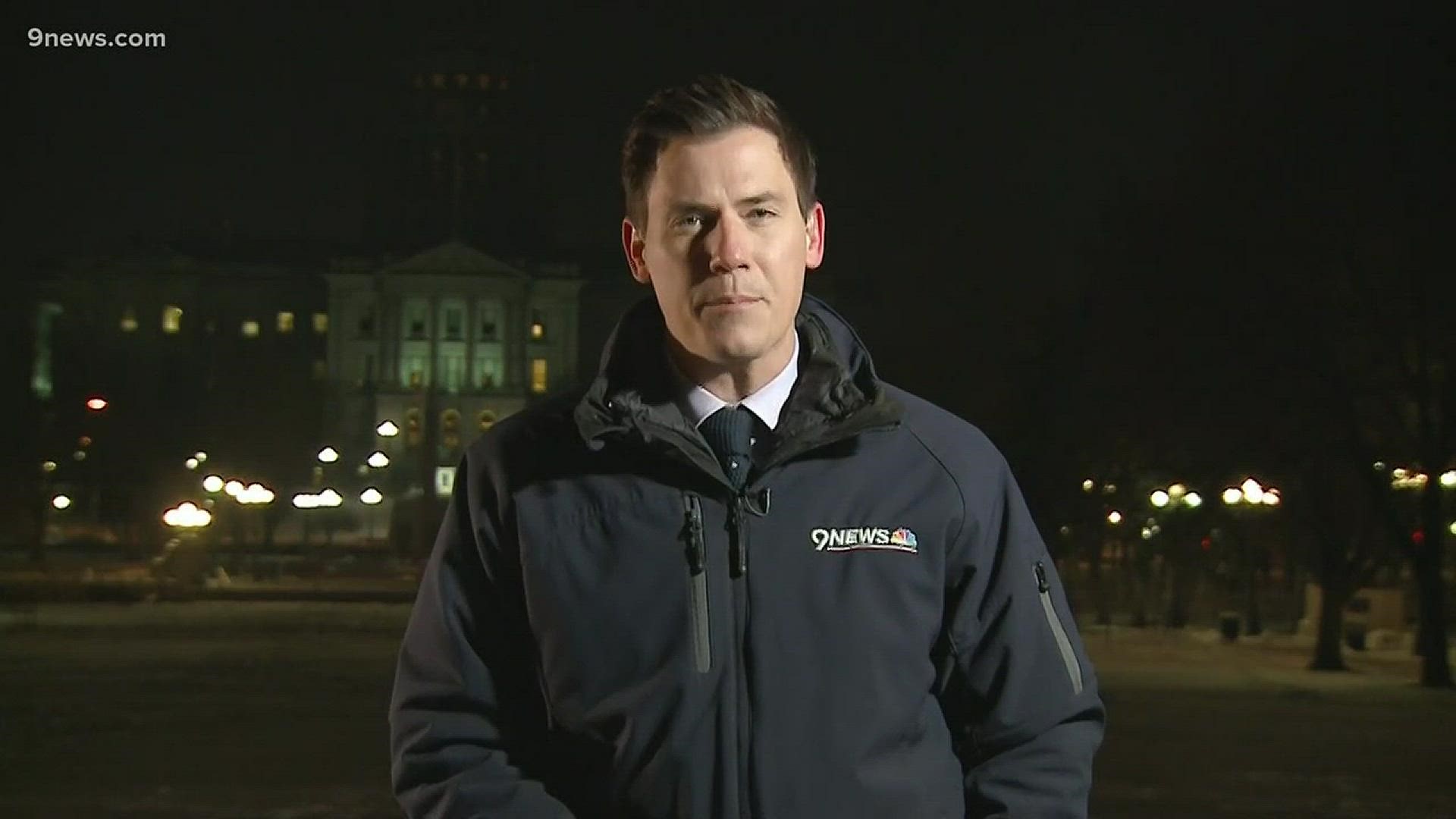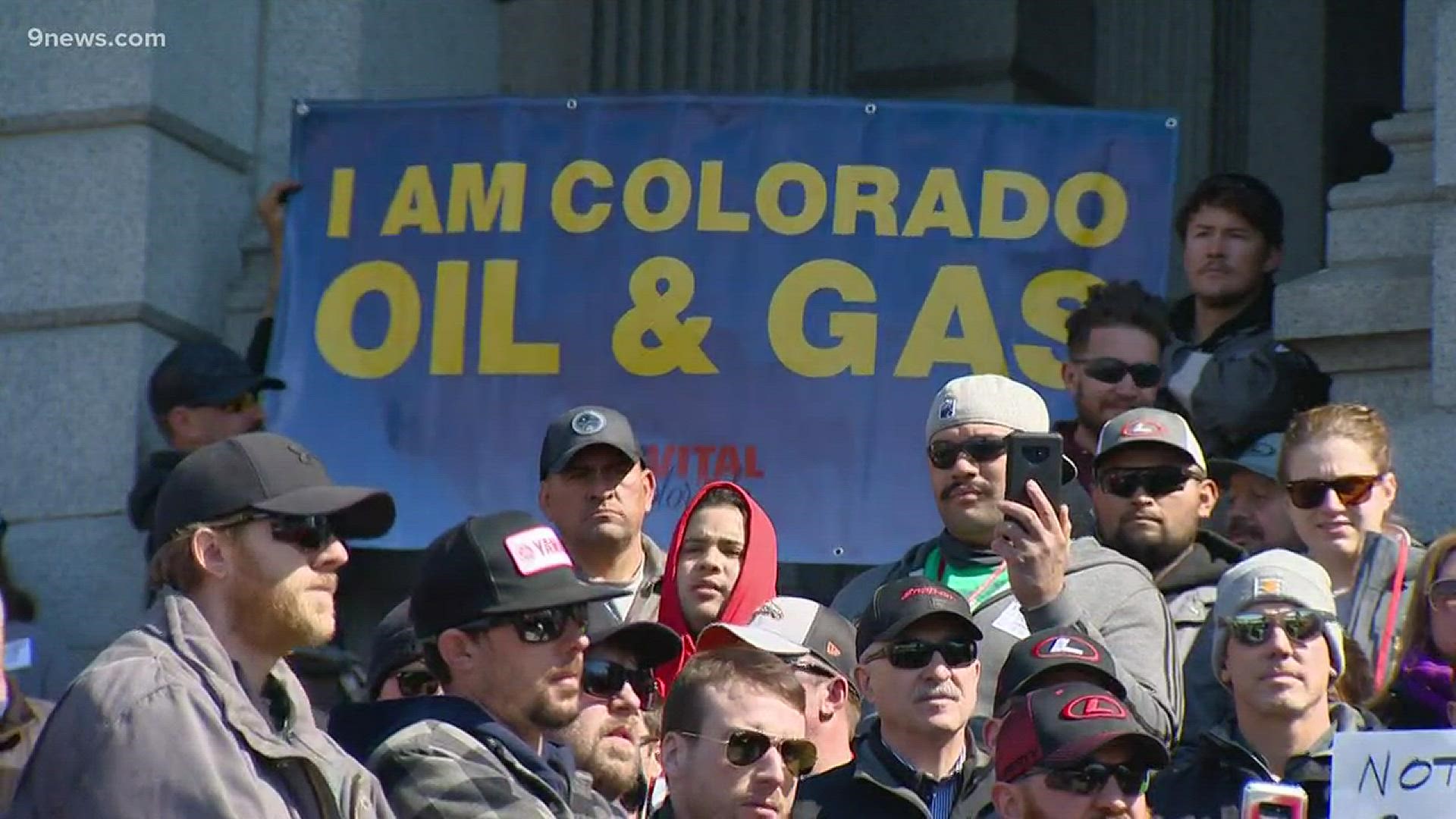DENVER — Early Wednesday morning, the Senate Transportation and Energy Committee passed a contentious oil and gas overhaul bill on a 4-3 vote. The bill now goes before the Senate Finance Committee for consideration.
Tuesday's hearing before the committee was the first of several before the sweeping measure gets final votes in both chambers. Hundreds of opponents of the bill — including oil and gas field workers — and supporters held separate rallies before the hearing
Supporters of a plan to overhaul Colorado's oil and gas regulations told lawmakers Tuesday that the measure is a flexible, common-sense approach to dealing with frequent conflicts over health and safety.
Opponents said it goes too far and could lead to a virtual ban on drilling in some areas. A state Senate committee held the first hearing on legislation backed by majority Democrats that would change the state's top priority from promoting oil and gas to protecting human health and safety and would give local governments authority over the location of new wells, a power now held by state regulators.
RELATED | The proposed changes to Colorado oil and gas regulations: Regulate wells, protect public health
The hearing continued late Tuesday with hundreds of people signed up to testify either in person at the statehouse or via video link from a half-dozen sites around the state.
Senate Majority Leader Stephen Fenberg, one of the measure's sponsors, told the committee that the proposal would set out a new mission for the Colorado Oil and Gas Conservation Commission, which regulates the industry, to protect people and the environment first, not promote energy production.
Jeff Robbins, acting director of the commission, said the agency already has some authority to protect health and safety but that the measure would do more.
"I think this legislation amplifies health and safety over and above where it is now," he said.
Tracee Bentley, executive director of the Colorado Petroleum Council, told the committee that the measure goes too far.
"It all but guarantees the industry could not operate in certain jurisdictions," she said. It would send a message that "Colorado is closed for business."
Weld County Commissioner Barbara Kirkmeyer, whose county is in the heart of the Wattenberg field, accused Democratic lawmakers of ignoring officials in energy-producing regions when they wrote the proposal.
"To most of us, local control means local government develops procedures that work best for local residents and local businesses like we have done in Weld County," Kirkmeyer said. "The truth is this bill defines local control as their way or the highway."
She said the last time Colorado significantly tightened oil and gas rules a decade ago, drilling in Weld County slowed to a crawl, property values plunged and thousands of jobs disappeared, both in oil and gas and in industries such as restaurants that depended on energy workers.
Democratic Sen. Mike Foote, a committee member, responded that a deep national recession caused the job losses, not regulation.
Erin Martinez, who survived a 2017 house explosion blamed on a leaking natural gas line, spoke in support of one provision in the measure that would require the state to publicly post the location of pipelines.
RELATED | Woman who lost husband, brother in Firestone explosion had a say in oil and gas reform bill
The blast killed her husband, Mark Martinez, and brother Joseph Irwin and destroyed the Martinez's home in Firestone. Investigators said the gas came from a pipeline that was severed nearby.
If the couple had known the location of the line, they never would have bought the house, Erin Martinez said.
The far-reaching measure also would reorganize the Oil and Gas Conservation Commission, reducing the number of industry representatives and adding commissioners with expertise in environmental protection and public health.
It would rewrite the rules for "forced pooling," a process that allows an energy company to extract oil and gas owned by multiple parties — even those who object — and then distribute the profits among them.
Now, regulators can approve forced pooling requested by one party. The new legislation would require more than half the mineral owners to agree before regulators issue a force pooling order.
SUGGESTED VIDEOS | Next with Kyle Clark


